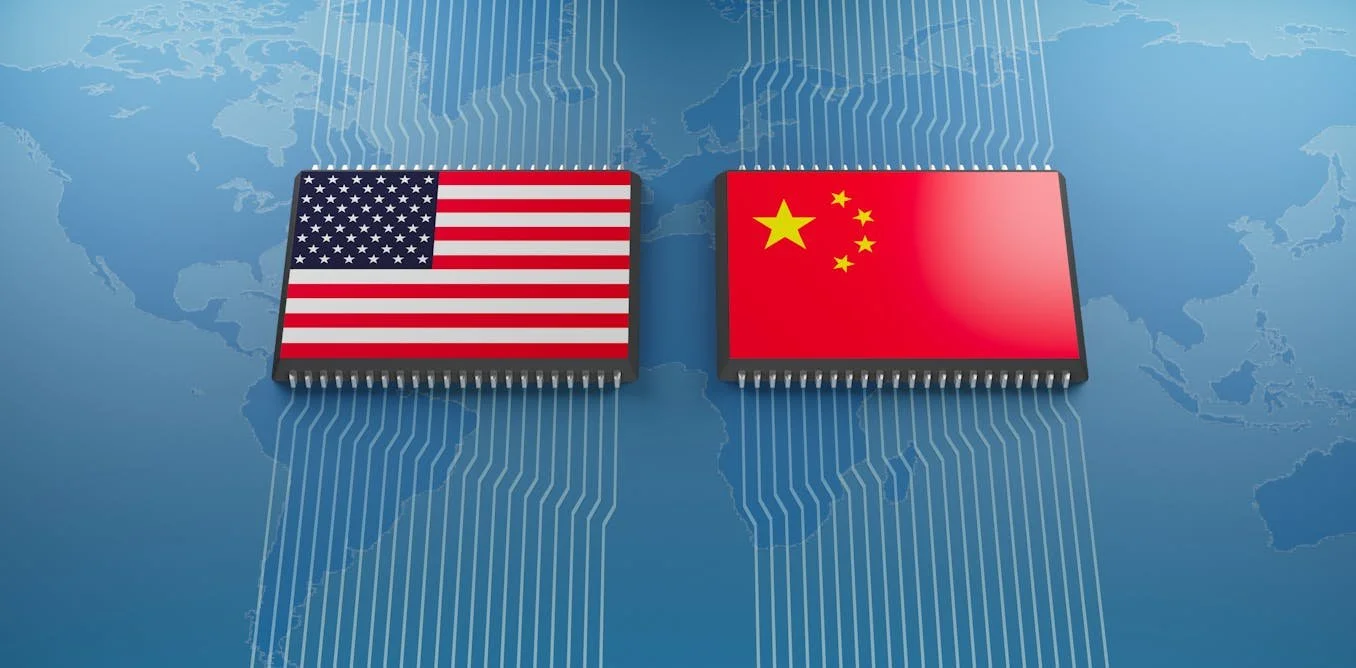Technology shapes power.
Collaboration shapes solutions.
The Center for Security, Innovation and New Technology brings together scholars, practitioners, and students to address the security challenges of our digital age. Based at American University’s School of International Service, we explore the risks and opportunities of emerging technologies—from cyber conflict and spyware to disinformation and frontier innovations—combining technical insight with social science to inform policy, foster innovation, and advance a more secure future.

What We Do
Research
We conduct research on the opportunities and challenges of emerging and digital technologies, including the geopolitical and societal impacts of AI, quantum computing, and cyber threats.

Engagement
We engage policymakers, experts, and students to shape technology and security policy through events, publications, and hands-on training.

Community
We build diverse communities collaborating across sectors to advance innovative, policy-focused research on technology and global security.
Recent Publications
Economic cyber espionage represents an ongoing threat to both nations and markets, yet unlike other cyber threats, it remains largely uninsured. This does not have to be the case. The underinsurance for economic cyber espionage is more of a mechanical problem, with coverage gaps hinging on proving damage to intangible assets. In fact, this protection gap persists even when attackers are “incompetent” (i.e., unable to use the IP they steal), since victims still incur measurable, indemnifiable costs.
The security of open source software (OSS) has morphed from a niche technical concern to a central cybersecurity policy challenge. High-profile incidents have led to suggestions for governments to help strengthen the OSS ecosystem, including calls for funds built to support open source projects and their maintainers, such as a proposal for an EU Sovereign Tech Fund. This research examines the argument that unconditional funding—namely, financial support without specific requirements for the recipient—causally improves the security posture of OSS projects.
The United Nations Educational Scientific and Cultural Organization (UNESCO) has designated 2022-2032 the International Decade of Indigenous Languages. This initiative comes at a time when endangered language speakers, linguists, and other groups are concerned about language extinction and the rapid spread of artificial intelligence (AI). Some researchers are optimistic that AI can be leveraged to help document, preserve, and revitalize at-risk languages, while others are concerned that the technology will accelerate the homogenization of human language.
Supply-chain decoupling doesn’t stop rival nations from hacking each other and can make it worse. A cyber-espionage expert explains what does work.
Between 2010 and 2022, 80 countries enacted new legislation or amended existing laws in an attempt to curb the spread of misinformation online. This sharp and global adoption of misinformation laws, however, cannot be explained by the sudden emergence of false or misleading information, as these problems have existed for a very long time.
Insecure software is a national security risk, costs the U.S. billions of dollars annually, and exposes users’ information to malicious actors. Software developers (vendors) who fail to securely develop their products currently face few legal repercussions, even if they engage in industry-agreed bad practices.
In a given month, more than 100 million people open Pokémon Go—the app that allows users to superimpose the world’s most profitable media franchise onto reality using only their smartphone. Using their phone camera and a flick of the wrist, they captured tiny digital monsters at the park, at the office, sometimes in active minefields, and, yes, in the bathroom.
Who else was watching?
Cyber espionage is the use of cyber tools and techniques to gather intelligence or steal sensitive information from targeted entities. This form of espionage poses significant risks to national security, economic stability and corporate integrity. Given the complex and often hidden nature of cyber espionage activities, accurately measuring their costs presents a significant challenge.
In recent years, countries in the Sahel region of Africa have faced widespread insecurity and instability. Stretching across the northern tier of sub-Saharan Africa, Sahel countries Niger, Mali, and Burkina Faso have all experienced a series of military coups and rising levels of right-wing extremism.
While social media disinformation has received significant academic and policy attention, more consequential forms of intentional manipulation target the underlying digital infrastructures upon which society depends.
Disinformation spread via digital technologies is accelerating and exacerbating violence globally. There is an urgency to understand how coordinated disinformation campaigns rely on identity-based disinformation that weaponizes racism, sexism, and xenophobia to incite violence against individuals and marginalized communities, stifle social movements, and silence the press.
As cyber threats become increasingly central to international politics, state-sponsored cyber attacks have become an instrument of geopolitical leverage.
Upcoming Events
CSINT events will start up again in the new year - we hope everyone enjoys the holiday season!
In the News & Community
CSINT Director Dr. Samantha Bradshaw will present her latest research on international competition over quantum technologies on November 17th, 2025, at Özyeğin University in Istanbul, Türkiye.
CSINT Director of Research William Akoto will moderate the AU SIS Online and Executive Program’s Fall Speaker Series on November 7th, 2025. This is an online event from 12:30pm to 1:30pm.
















